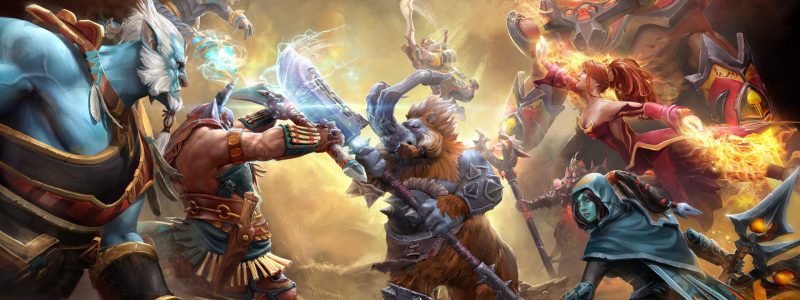Hi r/DotA2, I’m back bearing research findings!
TL;DR: I recruited for my PhD research here and promised the mods I’d come back with the results which you can check out and !
For those of you who don’t remember me, I’m a PhD candidate at the University of Toronto studying emotions and videogames. A while ago I recruited from this subreddit for one of my studies, and I promised the mods I would come back and post my findings. I’m also currently running another study to wrap up my dissertation work (, and find out the finer details about below!). In my last study, I was looking at two different aspects of the affective experience of gamers; namely, tilt and dysregulated gaming (i.e., ‘videogame addiction’).
For tilt, I wanted to find out the relationship between people’s motives for gaming, their ability to regulate their emotions, and their tilt frequency. What I found was that both competitive gratification motives (i.e., playing games to improve your skill at the game) and mood management motives (i.e., playing games to improve your mood) both independently predicted tilt frequency. I also found that emotion dysregulation (i.e., the inability to regulate your emotions) was only found to play a significant moderating role in the relationship between competitive gratification motives and tilt frequency, but not mood motives and tilt frequency. What this suggests to me is that if you’re often fueled by competitive motives for gaming and find yourself tilting too frequently, one thing you might consider working on is your ability to reappraise performance failures as opportunities for improvement to help manage the negative emotional sting that sets off the cycle of tilt. That being said, this wasn’t an experimental study so we can’t infer the causal direction of any of these relationships. Thanks to your participation, I was able to present these findings at a sport psychology conference in Montreal ().
On the topic of dysregulated gaming, I was interested to find out the role of emotion regulation as a protective buffer against videogame addiction. Most models/diagnostic criteria consider ‘mood management’ as either a core or peripheral component of videogame addiction – which also makes intuitive sense; if you play videogames to deal with your negative moods instead of addressing the actual cause of the negative mood, you’re gonna’ have a bad time. What I wanted to do here was take a more detailed look at emotion regulation abilities and how they relate to dysregulated gaming severity, while accounting for mood motives for gaming. What I found was that emotion regulation feedback responsiveness (i.e., your ability to monitor and adapt ongoing emotion-regulation strategies based on their current effectiveness) plays the largest protective role against problematic gaming both through its direct path to dysregulated gaming severity, and its indirect path through mood motives for gaming. Again, thanks to you fine folks being so generous with your time and participation, I was able to present these findings at a social psychology conference in Atlanta (). I’m also currently working on writing up these findings for publication. Let me know if you’re interested in reading the full paper, and I can share it with you if/when it gets published!
All this to say, thank you all so much for taking the time to participate in my research – you’ve really helped carry me through grad school! I have one more study that I’m running to cap off my dissertation that I’m still recruiting for. For this one, I want to take a more detailed look at how moods and gaming relate to each other throughout the day. It involves downloading an app that pings you throughout the day to report your current mood, whether you’re playing videogames, and a few other questions. I know that’s a big ask, so I’m putting up $500 (CAD) in prizes for this one. Every time you answer one of the pings, you get an entry into the draw for 1 of 5 $100 gift cards to the platform of your choice. If you answer 80% or more of the pings, you get a bonus full-day’s-worth of entries in the draw. If you’re interested in participating, . Also, please note that if you checked the box saying “Let me know about future research opportunities” in my previous study, you may have already received an email asking you to participate in this one!
Source: https://www.reddit.com/r/DotA2/comments/11wncwb/psychology_study_results_from_a_study_i_recruited/







